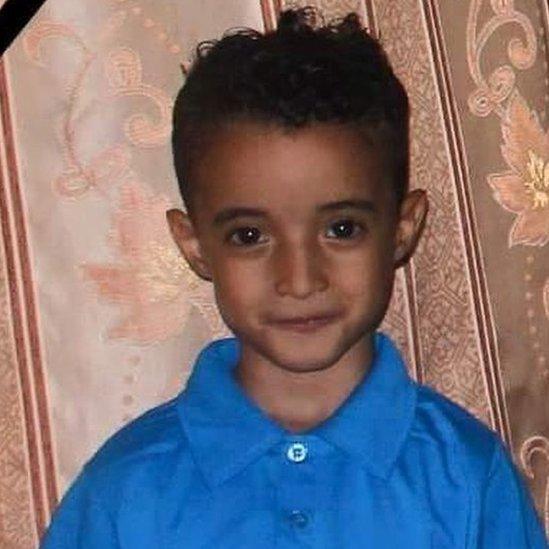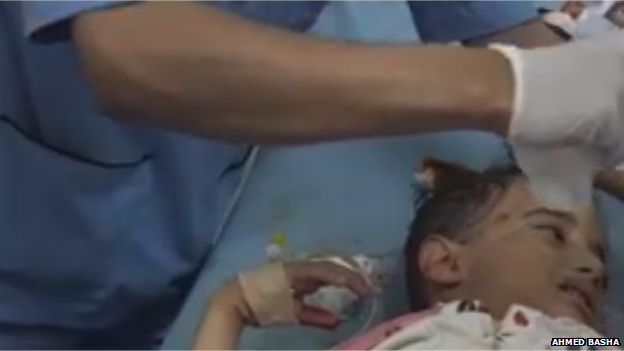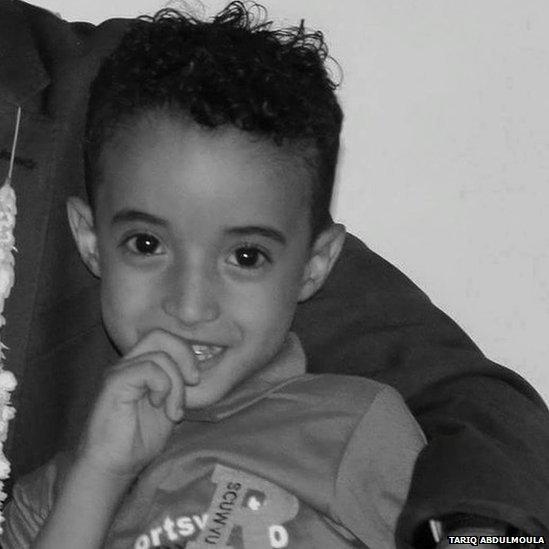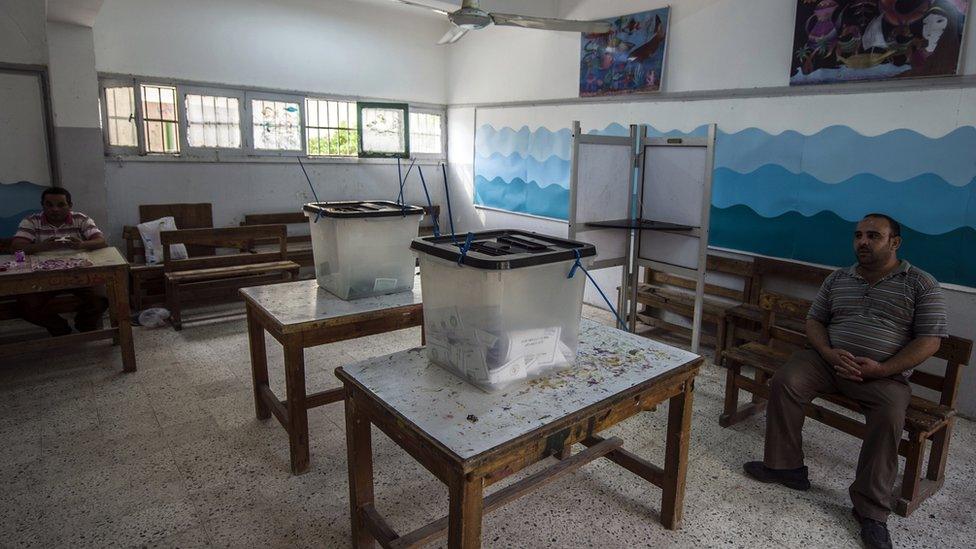A dying boy’s plea that became an iconic message for peace
- Published

6-year-old Fareed Shawky was seriously injured after a missile hit his house in Yemen's third city of Taiz.
A video of a young Yemeni boy lying on a hospital bed being treated for injuries from flying shrapnel has had over 50,000 views on Facebook - and has become a moving symbol of the human cost of the war in his country.
Warning: this article contains a distressing image.
The video shows 6-year-old Fareed Shawky pleading in a soft voice to doctors. "Don't bury me," he says as tears stream down his face.
He had sustained injuries to his head and other parts of his body and was suffering from internal bleeding, after being struck with shrapnel after a missile attack by Houthi rebels. Parts of Yemen are also being bombed from the air by a Saudi-led coalition.
The video, which viewers should be warned shows a number of distressing images, can be watched here, external. A few days after it was taken, Fareed Shawky died. Since then his plaintive appeal for life has trended on social media. And now thousands of Yemenis online are using his words to appeal for an end to the conflict.
"Just like young Aylan [Kurdi's] death encapsulated the tragedy of the Syrian people, Fareed's plea not to be buried encapsulates the tragedy of the Yemeni people," wrote a Yemeni activist on Facebook, external.
Another Yemeni wrote: "To my child that I never had: You will thank me for not having you my dear. This is not a good place for you, trust me. I'm not as strong as your grandmother and all the bedtime stories I know now are about war, death, crazy people and a lost home."

A partial image of Fareed Shawky in the video
At least 2,300 civilians have been killed in Yemen's war - including more than 500 children. Yemen's third city of Taiz, where Fareed lived, has been witnessing some of the most intense fighting between locals - who are being armed by the Saudi-led coalition- and the Houthis.

Confused about Yemen? Want to know more? Check out this interactive explainer.

Fareed's story
On 13 October, a missile hit a residential area of Taiz. "I was walking down a street when I heard a missile being launched and I froze on the spot wondering where it would land," Ahmed Basha, the Yemeni photographer who published the video, told BBC Trending.
When Basha heard the explosion he ran towards it to see where the missile had landed. "It had fallen on a house," Basha says. "I saw at least five young children, who were playing outside the house, being taken to a hospital on motorcycles."
Basha followed them to the hospital and could immediately tell that Fareed Shawky had suffered the worst injuries. "He was drifting in and out of consciousness," Basha remembers.

Fareed Shawky
"I was heartbroken over this young boy and so I published the video on a Facebook page I run, but it didn't get much attention," he says. It seems that Fareed's story only went viral after he died "It's a shame that people couldn't care more when he was still alive... his words will stay with me."
Fareed's death might have made his story harder to ignore, but it was his words that seemed to resonate with the thousands of Yemenis sharing his picture.
"'Don't bury me'… the little boy summed it all up. May there be mercy on Fareed's soul and all the other young ones who have died for no reason," wrote one Yemeni on Facebook.
There's a strong anti-Houthi sentiment in Taiz, and many posting online from the city favour the Saudi-led military offensive in Yemen which aims to defeat the armed rebels. But the conversation around this young boy's death seems to have transcended divisions, prompting many on all warring sides to call for an end to the violence.
"The war has to end, there must be a solution to this conflict," says Basha. "At the end of the day these are children, they have nothing to do with the politics of this war."
Blog by Mai Noman, external
Next story: Egypt's melancholy as people claim 'no one went' to vote

The low turnout at an election to choose Egypt's new parliament has prompted sarcasm and mockery on social media.READ MORE
You can follow BBC Trending on Twitter @BBCtrending, external, and find us on Facebook, external. All our stories are at bbc.com/trending.